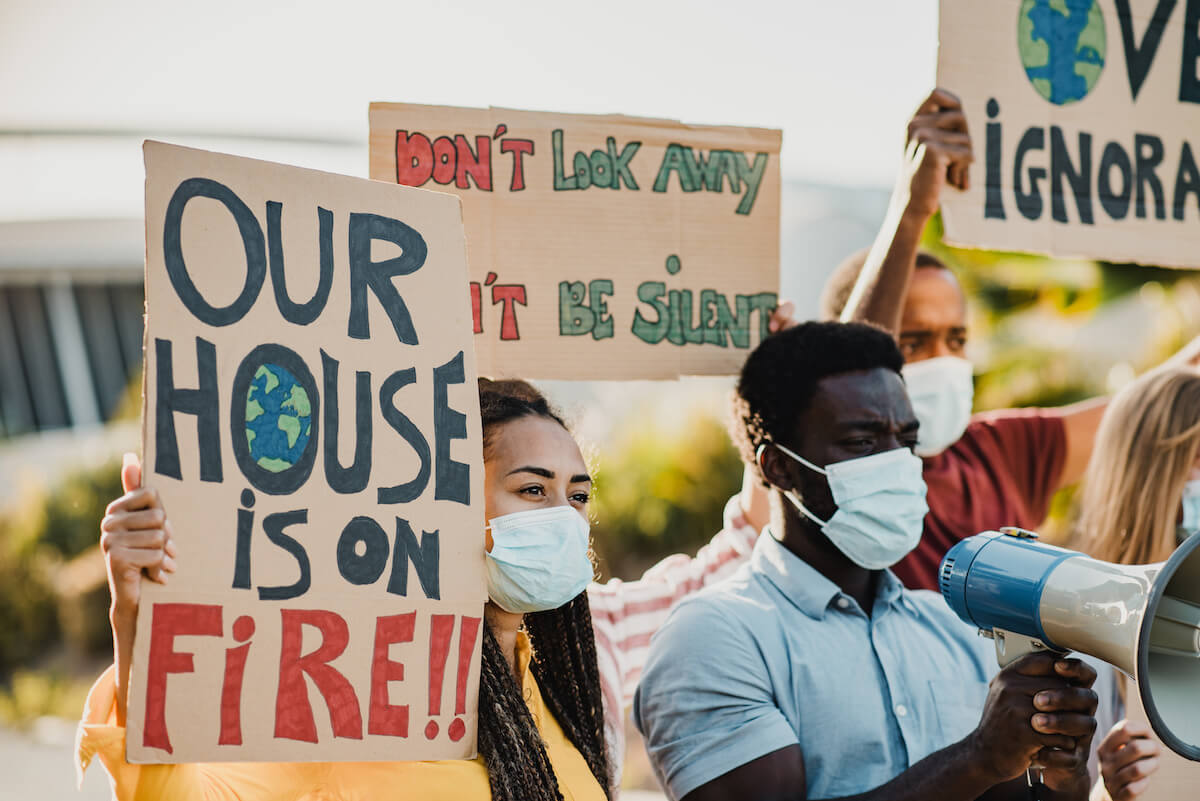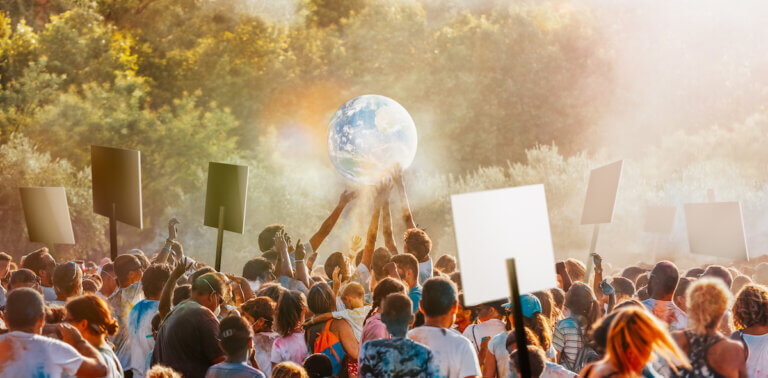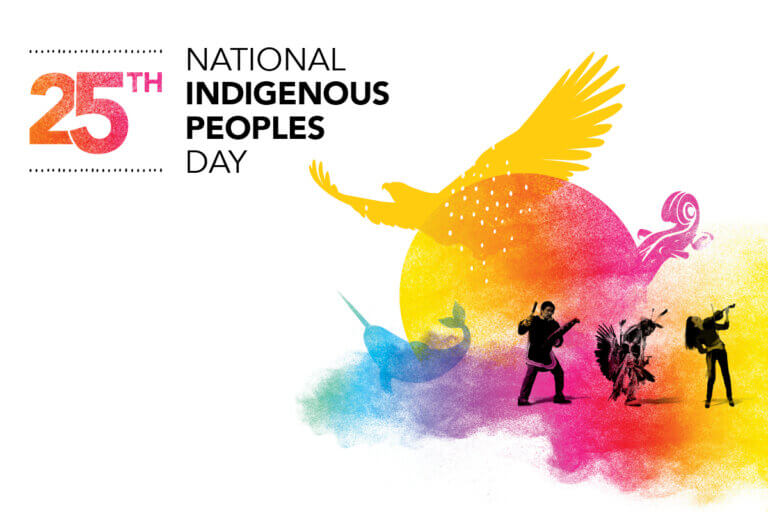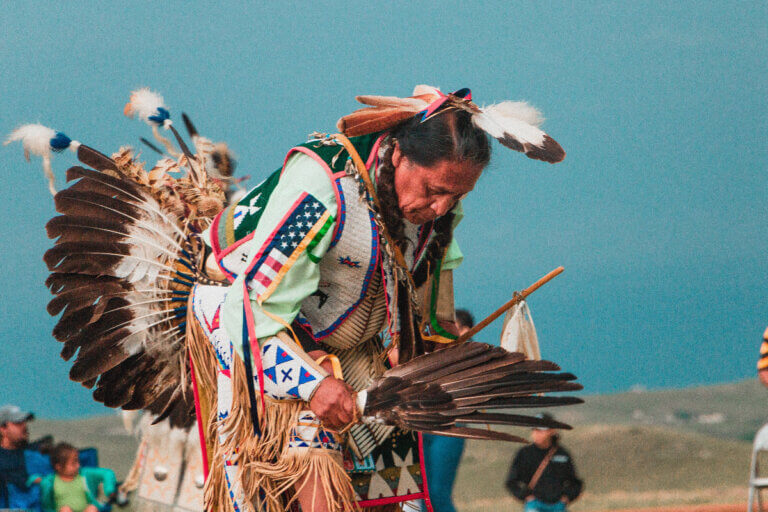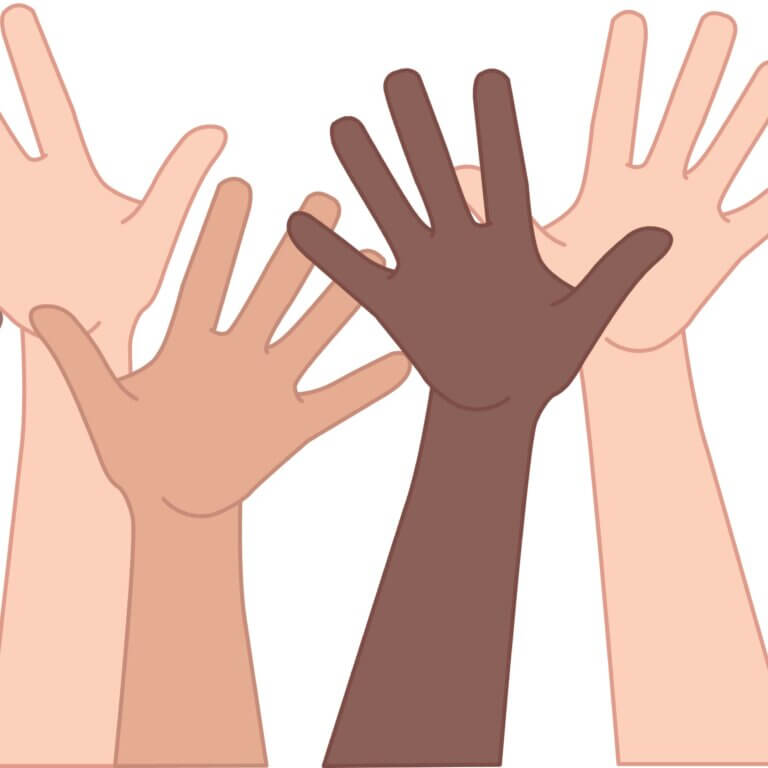As global temperatures continue to rise and governments drag their feet on plastic bans, phasing out oil and creating the policies needed for tangible change, young climate activists are standing up in an effort to hold their governments accountable.
Greta Thunberg has become the face of the youth climate change movement, especially after her scathing speech at the 2019 UN Climate Action Summit in New York. More recently, she called out the world’s leaders on their lies and “blah blah blah,” in her own words at the 2021 COP26 Summit in Glasgow. However, Thunberg is far from the only young climate activist demanding governments follow through on tangible action to halt the current climate crisis.
Young Climate Activists Who Are Demanding Action
Here are five young climate activists who are taking a stand and making their voices heard.
1. Isra Hirsi
Isra Hirsi is an 18-year-old climate activist from Minneapolis, Minnesota and the daughter of U.S. Congresswoman Ilhan Omar. Hirsi is the co-founder and co-executive director of the US Youth Climate Strike. The organization, which has organized several strikes since it was founded in early 2019, also distributes funds to youth climate groups who are not only fighting climate injustice, but also the entwined injustices faced by low-income and racialized communities.
Hirsi does not stand back from addressing more than one issue, speaking directly to the dual harms of both erasure and tokenism that happens within activism in her TEDX presentation titled “The Angry Black Girl”. As a Black Muslim, Hirsi adds an important and necessary voice to the climate discussion, tirelessly pointing out that climate change does not impact us all equally.
2. Xiye Bastida
Xiye Bastida is a 19-year-old Mexican-Chilean climate activist and one of the core organizers of Fridays for Future New York. Bastida was born and grew up in San Pedro Tultepec, Mexico, with swinging extremes of climate change. Damaging droughts followed by sweeping flooding were prevalent in her community and the reason her family moved to New York. Bastida’s story is one of many in the global south, where the effects of climate change are prevalent, leading to mass migration as people leave their homes for safer areas.
During her TEDTalk on Oct. 30, 2021, Bastida and fellow climate activist Shiv Soin presented a list of demands for world leaders on addressing climate change. Among the list were items such as centering workers and impacted communities within policy discussions, holding large corporations accountable for their actions and removing the political power of fossil fuel companies from decision-making tables.
“We find ourselves in a critical moment where we don’t have time to lose on just talking and having conferences that won’t amount to real action,” Bastida said pointedly during the talk. Not one to just present problems, Bastida has also collaborated on a video illustrating what the future could look like if we think creatively about changes to mitigate and undo the effects of the climate crisis.
3. Autumn Peltier
Related Articles
Autumn Peltier is the Chief Water commissioner for the Aniishnabek Nation from the Wiikwemkoong Unceded Territory on Manitoulin Island. She is notable for challenging Canadian Prime Minister Justin Trudeau on his environmental record in 2016 when she was only 12 years old. She extracted a promise from Trudeau that he would “protect the water”. Peltier has recently said she believes Trudeau “could care more” about the lack of improvement on clean water on Indigenous reservations, especially since it was part of his campaign platform in 2015.
During a speech at the 2019 Global Landscapes Forum, Peltier explained how she became a water protector. “It all started by learning why my people couldn’t drink the water on Ontario Indigenous lands,” she told the audience. “I was confused because Canada is not a third world country, but here the Indigenous people live in third world conditions.” Peltier has spoken multiple times in front of the United Nations at various events, stressing the importance of taking care of the planet’s water, stating very clearly that, “We can’t eat money or drink oil.”
As the global pandemic continues, Peltier has pointed out that, due to unsafe water, many Indigenous communities are unable to properly clean and sanitize, putting them at further risk of getting sick, further illustrating the ways in which climate change impacts marginalized communities the hardest.
4. Lesein Mutukei
Lesein Mutukei is the 17-year-old founder of Trees For Goals, which encourages soccer clubs to plant 11 trees for every goal scored. The teen, who is from Nairobi, Kenya, has been impacted by the effects of deforestation, including mudslides and droughts, which have been fatal for hundreds of people in his community.
Mutunkei has said he decided to combine his passion for climate justice with his love of soccer because they both have global impact. By harnessing the positive power of soccer, people can collectively work to fight climate change. It should come as no surprise that Mutunkei’s inspiration for Trees For Goals came from Nobel prize winner Wangari Maathai’s story about a hummingbird that tries putting out a forest fire by carrying water in its beak as other animals run away.
His initiative is a relatively simple one, something Mutunkei has said is intentional because it makes it more accessible to other young people who want to get involved as climate activists and be a part of the solution. Since starting in January 2018, the young climate activist has planted over 1,400 trees with the help of his soccer team and school. The Kenyan forestry management agency also supports the project by providing data on which trees are best to plant. Mutunkei’s goal is to get the international soccer committee FIFA involved in the project, stating that it would have an immense impact on the climate crisis conversation.
5. Leah Namugerwa
Leah Namugerwa has spearheaded the Ugandan chapter of Fridays for Future, leads tree planting campaigns and has started a petition for the Ugandan government to enforce the plastic bag ban. Namugerwa was inspired to start her own Fridays for Future in 2019 after learning about Greta Thunberg and her work.
Like many other climate activists, Namugerwa’s home has been impacted in multiple ways because of the climate emergency: irregular rain patterns, increases in mosquitoes, and rapidly changing weather patterns are all concerning effects Ugandans are facing.
Taking these steps has not been easy. When Namugerwa first started protesting during her Fridays for Future, she said she received odd looks. There are still members of her community who don’t fully understand why she’s doing this work. However, Namugerwa is optimistic that things will get better, pointing out that every time she goes out to clean a lakeshore or plant trees, more people join in and the message continues to spread.
